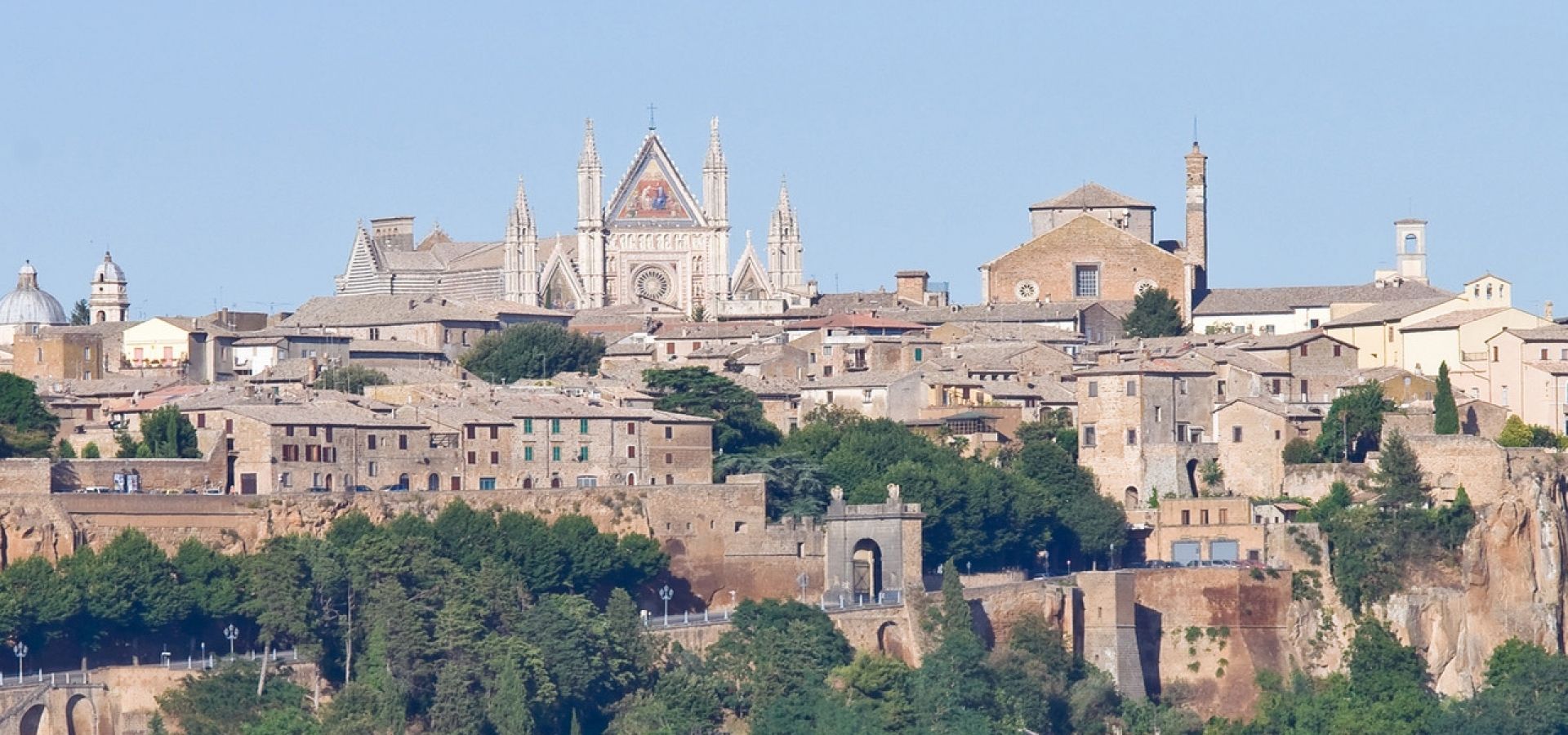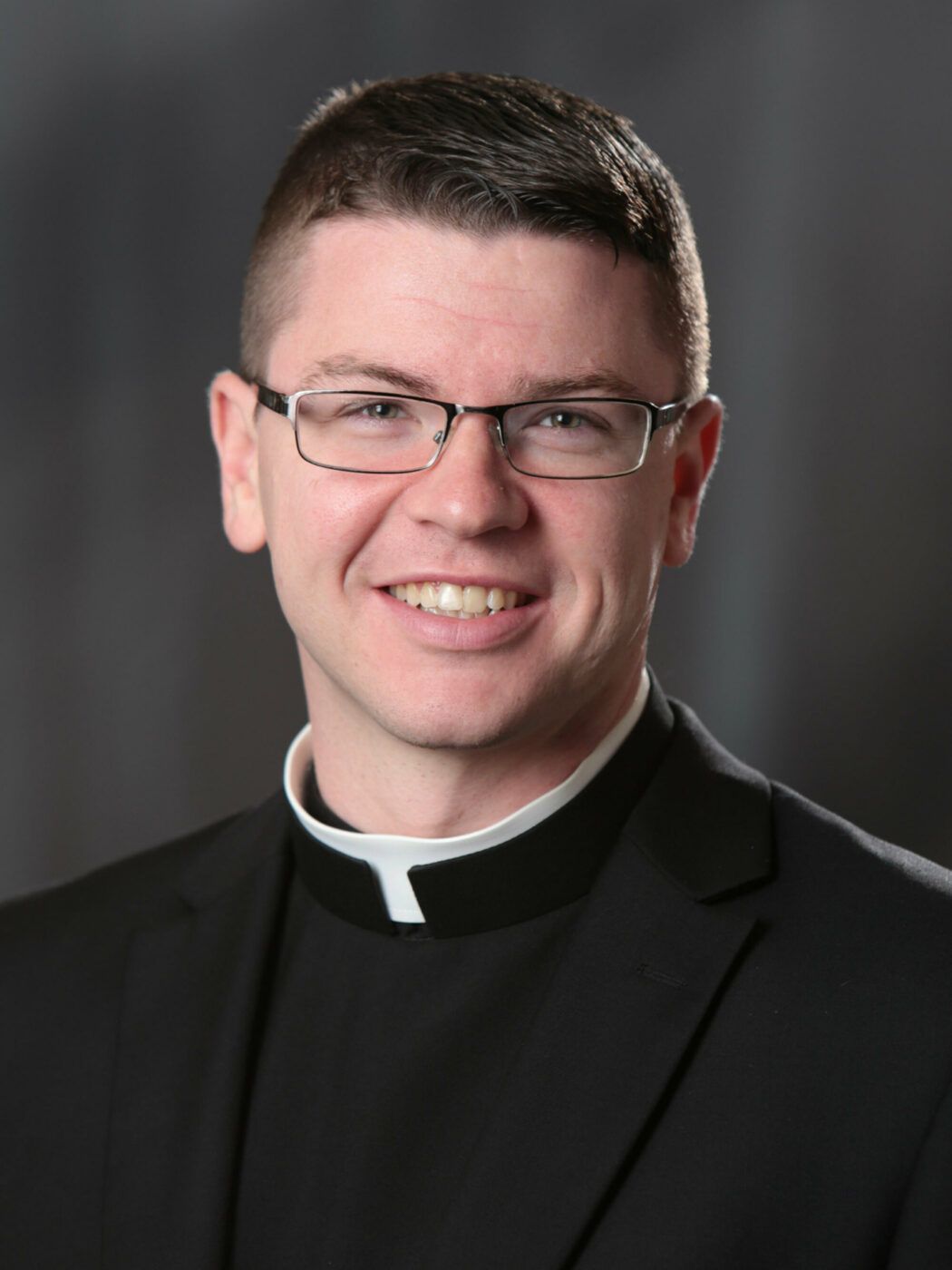In the year 1263 the German priest Peter of Prague began to doubt the real presence of Christ in the Eucharist. In answer to his prayer for an increase of faith, as he celebrated Mass God saw fit to have blood drop from the consecrated host onto the corporal or altar cloth. Moved by the Eucharistic miracle, the priest and people carried the bleeding host and altar cloth in procession, as it were, to the Pope for verification.
At that time, the Pope was staying in the small Italian village of Orvieto north of Rome. The Pope greeted the procession in the street and confirmed the miracle. He asked the Church’s greatest theologian Thomas Aquinas, resident in Orvieto at the time, to compose hymns to the Blessed Sacrament in honor of this miracle. The following year the same Pope Urban IV declared a universal feast of Corpus Christi—the Body of Christ.
Some eight centuries later one can visit Orvieto and pray before the corporal—the blood-stained cloth. St. Thomas’s hymn of adoration forms the sequence for today’s Mass, which can be sung before the Gospel. Three lines from this hymn especially manifest the core of Catholic faith in the holy Eucharist.

On today’s feast the Church makes the words of St. Thomas her own: “Bring him all the praise you know. He is more than you bestow. Never can you reach his due.” With this phrase we recall that God has given us everything; we can never pay Him back. In the Eucharist we come to realize God gives us His very self. What can we offer in return? Our whole lives belong to Him. With the Eucharist—the real presence of Christ, under the appearance of bread and wine—we realize how much God loves us. He wants to be with us. Because of the Eucharist we are never alone.
Second, St. Thomas writes: “Sight has fail’d, nor thought conceives. But a dauntless faith believes. Resting on a pow’r divine.” On this feast of Corpus Christi, we discover our senses fail to perceive the deepest truth about human life. Even more than that, we could never have even conceived what a gift God had in store for us. It’s more than we imagined. Only faith can perceive accurately this truth: Jesus Christ is present in the holy Eucharist. In the grace of Baptism God gives us the power, the virtue of faith, to recognize the truth of His real presence. He is here. He has come to be with us and love us and strengthen us for Heaven.
Third, “What he did at supper seated. Christ ordained to be repeated. His memorial ne’er to cease.” At the Last Supper, Christ instituted the manner in which He would remain present to us. The Holy Mass, offered every day until the end of time, makes present His sacrifice of love. At the celebration of Mass, we do not merely recall some event of long ago. Rather, His sacrifice on the Cross is made present on the altar.
On the feast of Corpus Christi, we renew our love for Jesus in Eucharist. In a Church where the Eucharist is loved there will be many and holy priestly vocations. In a Church where the Eucharist is loved there will be many religious vocations, as young people will see there can be no greater love than Christ in the Eucharist. In a Church where the Eucharist is loved, husbands and wives will live the full truth about marriage. In a Church where the Eucharist is loved, the suffering will recognize the strength and hope that comes only from God in the holy Eucharist.
In a word, the Church will flourish only when her members love Jesus in the Eucharist more and more. On this feast of Corpus Christi, we ask God to increase our love of Him truly present in the Most Blessed Sacrament.


